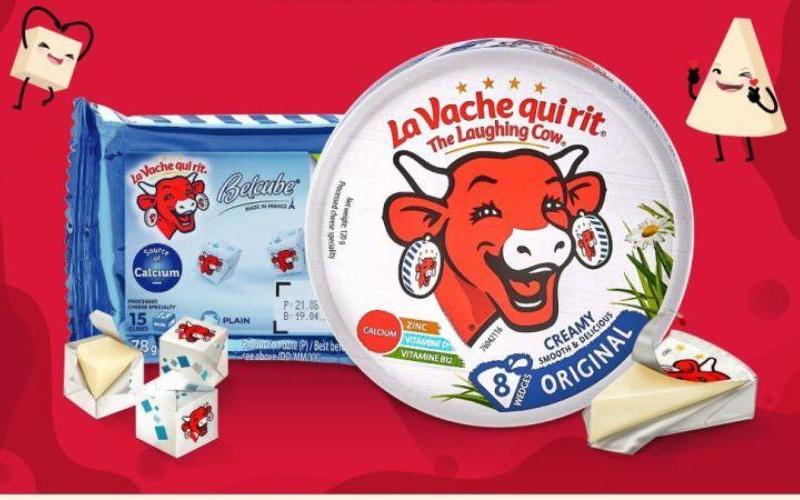Bel Group's Strategic Moves to Localize and Expand in Asia
Sourse: www.foodnavigator-asia.com
Bel Group employs localization tactics and halal certification in Asia to boost product accessibility and consumer trust.

Bel Group, recognized for its popular cheese brands like Kiri and The Laughing Cow, is actively pursuing a localization strategy through regional collaborations, aiming to enhance product relevance and accessibility. Recent partnerships underscore this approach: Kiri has teamed up with Korea's Knotted Café to create unique offerings like Kiri Cheese Foam Matcha Latte and Cream Cheese-filled Bread. Similarly, The Laughing Cow has spotlighted its adaptability in Singapore by pairing with the traditional Nyonya snack, Kueh Pie Tie.
These initiatives highlight the company's focus on showcasing its cheeses' versatility while maintaining product accessibility. The company ambitiously aims to provide healthier, sustainable products to over 600 million consumers by 2035, adapting to local tastes and nutritional needs. Part of this commitment involves reaching Muslim communities in the Asia Pacific region, where Bel Group achieved halal certification from Malaysia’s JAKIM in 2024 and Indonesia’s BPJPH shortly after.
“As one of the largest Muslim populations globally, with over 242 million Muslims, Indonesia represents a priority market for us. Understanding that halal certification is vital for consumers, we are pleased to offer The Laughing Cow products with the BPJPH halal certificate," said Alamjit Singh Sekhon, General Manager for Bel South East Asia. This initiative addresses nutritional deficiencies, specifically in protein and calcium, pivotal for Indonesian children. Market data indicates the vital role of halal certification, with 93% of Indonesian consumers considering the Halal logo a crucial aspect of food purchase decisions.
Bel Group's move ensures compliance with government regulations while resonating with consumer values by providing accessible, trustworthy products aligned with cultural and religious values. Despite the strategic initiatives, dairy consumption in Southeast Asia remains significantly below the global average—50 kg in Malaysia (2019) and 13–16 kg in Indonesia (2023), compared to the global per capita of 113–117 kg. Reports like the OECD-FAO Agricultural Outlook 2025–2034 project that total dairy consumption will increase faster than production in regions like Africa, Southeast Asia, and NENA, further emphasizing the importance of imports to meet growing demands.
These initiatives highlight the company's focus on showcasing its cheeses' versatility while maintaining product accessibility. The company ambitiously aims to provide healthier, sustainable products to over 600 million consumers by 2035, adapting to local tastes and nutritional needs. Part of this commitment involves reaching Muslim communities in the Asia Pacific region, where Bel Group achieved halal certification from Malaysia’s JAKIM in 2024 and Indonesia’s BPJPH shortly after.
“As one of the largest Muslim populations globally, with over 242 million Muslims, Indonesia represents a priority market for us. Understanding that halal certification is vital for consumers, we are pleased to offer The Laughing Cow products with the BPJPH halal certificate," said Alamjit Singh Sekhon, General Manager for Bel South East Asia. This initiative addresses nutritional deficiencies, specifically in protein and calcium, pivotal for Indonesian children. Market data indicates the vital role of halal certification, with 93% of Indonesian consumers considering the Halal logo a crucial aspect of food purchase decisions.
Bel Group's move ensures compliance with government regulations while resonating with consumer values by providing accessible, trustworthy products aligned with cultural and religious values. Despite the strategic initiatives, dairy consumption in Southeast Asia remains significantly below the global average—50 kg in Malaysia (2019) and 13–16 kg in Indonesia (2023), compared to the global per capita of 113–117 kg. Reports like the OECD-FAO Agricultural Outlook 2025–2034 project that total dairy consumption will increase faster than production in regions like Africa, Southeast Asia, and NENA, further emphasizing the importance of imports to meet growing demands.
Key News of the Week










